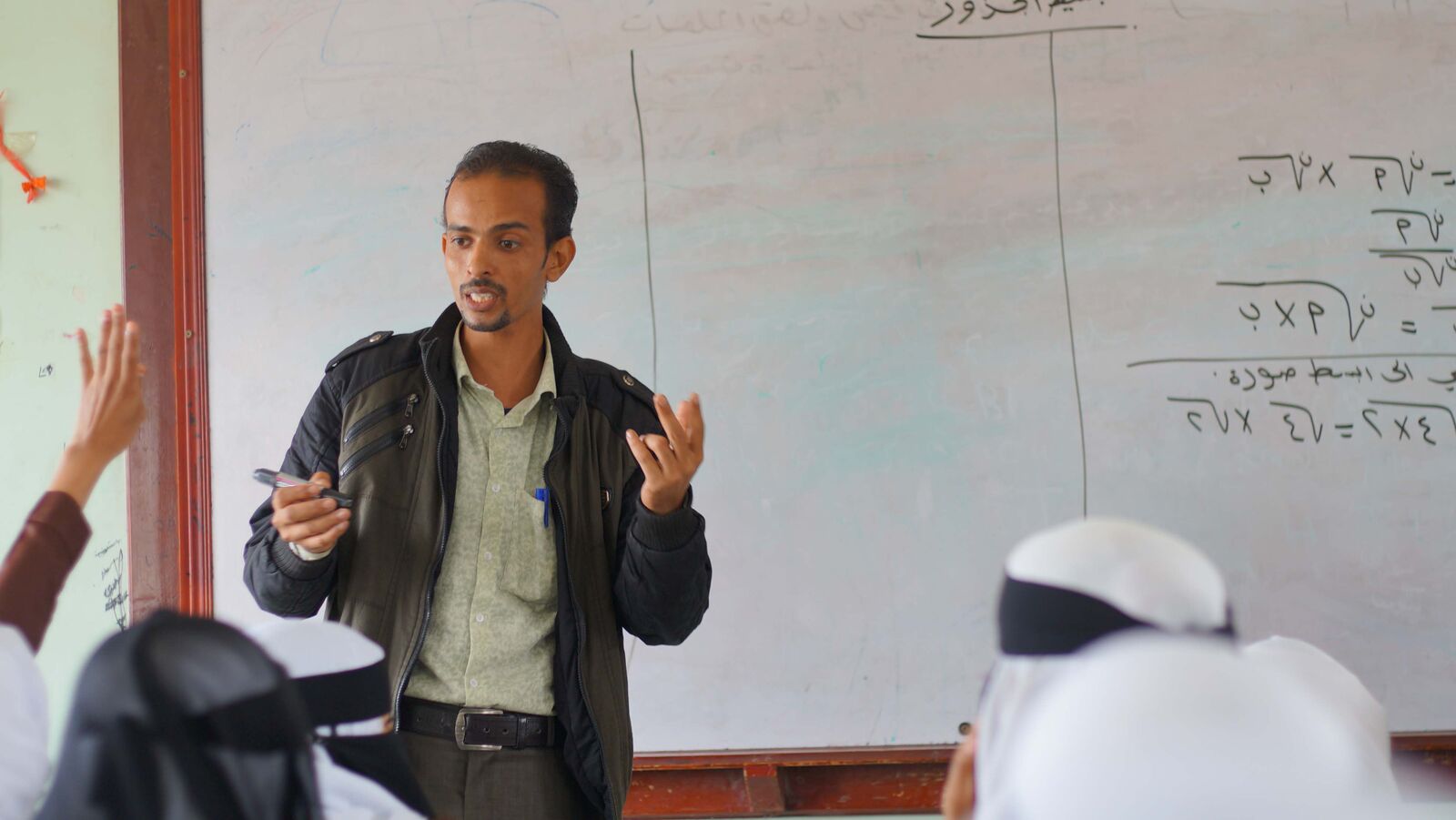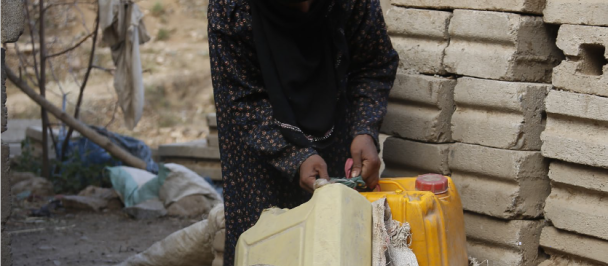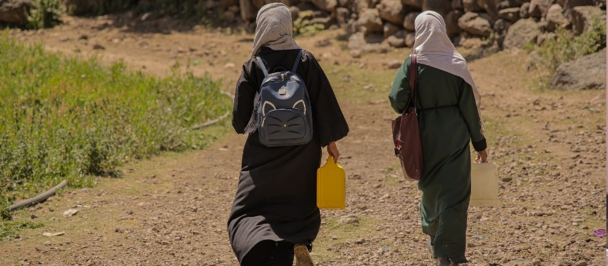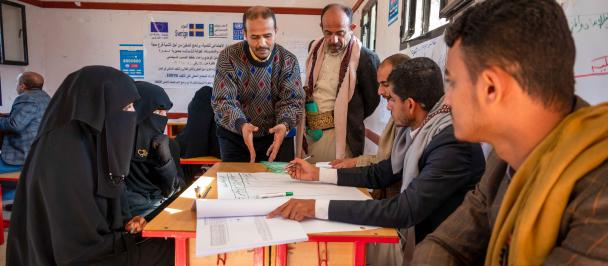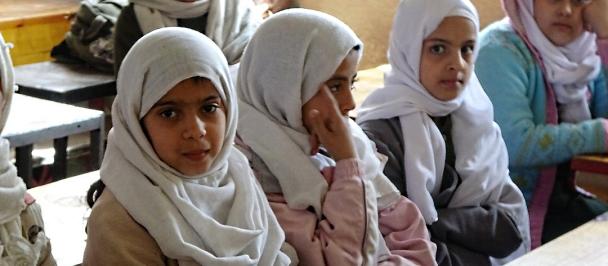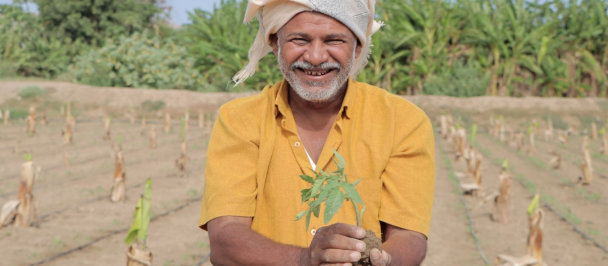Mohammed continues teaching his students despite of not getting a monthly salary
In what was already the poorest country in the Arab region, conflict has driven Yemen into economic crisis. National revenues have plummeted, leaving government unable to pay its staff and provide basic services, such as education. More than half of the nation’s teachers have not been paid since 2016.
At the same time, hyper-inflation has increased the cost of food by 150, making survival very difficult for most Yemenis. More than half of the population lives on less than US$1.90 per day and nearly one quarter of the population is malnourished.
Mohammed is just one of hundreds of thousands of Yemenis, who have struggled to earn an income. As a college graduate, he was eager to work and eventually resorted to volunteering his services as a teacher. For this, he received a government stipend of about $60 per month. It wasn’t enough to meet the needs of his wife, four daughters and visually-impaired father. “I had to borrow money from my friends,” he explains. Nonetheless, he says, “I was in need of money for my family.” And so, even as he volunteered, he continued to look for work.
When Mohammed received news that his stipend would be reduced to just $40, he was overwhelmed: “Sixty dollars wasn’t enough… let alone $40!”
UNDP’s Yemen Emergency Crisis Response Project reduces the negative effects of crisis on local households and communities, reasoning that if income-generation and livelihood opportunities are increased for the most vulnerable groups, then households will be stronger, better able to cope, and capable of assisting and contributing to their own communities.
"Amid that situation, a colleague of mine called and told me of a youth-supported program that pays salaries of volunteer teachers at Al-Ghafeqi School."
When a colleague informed him that the Social Fund for Development would be paying the salaries of voluntary teachers, Mohammed was incredulous. "I didn't believe that volunteer teachers would receive salaries.”
In fact, the project paid each teacher $150 per month – significantly more than Mohammed had received previously.
“I was very happy when I received my first salary,” he says. “I’m now able to provide a decent living for my family.” In addition, he has begun to pay off his debt.
To date, 328,579 individuals have been engaged in short-term jobs and 8,203 youth (of whom 70 per cent are female) have been trained and employed in education and other areas that can benefit their communities.
***
Funded by the World Bank, the Yemen Emergency Crisis Response Project (YECRP) is implemented by UNDP in partnership with the Social Fund for Development (SFD) and the Public Works Project (PWP). The US$300 million project provides economic stimuli in the form of large cash-for-work projects, support to small businesses, and labor-intensive repairs of socio-economic assets, benefiting vulnerable local households and communities across Yemen.

 Locations
Locations